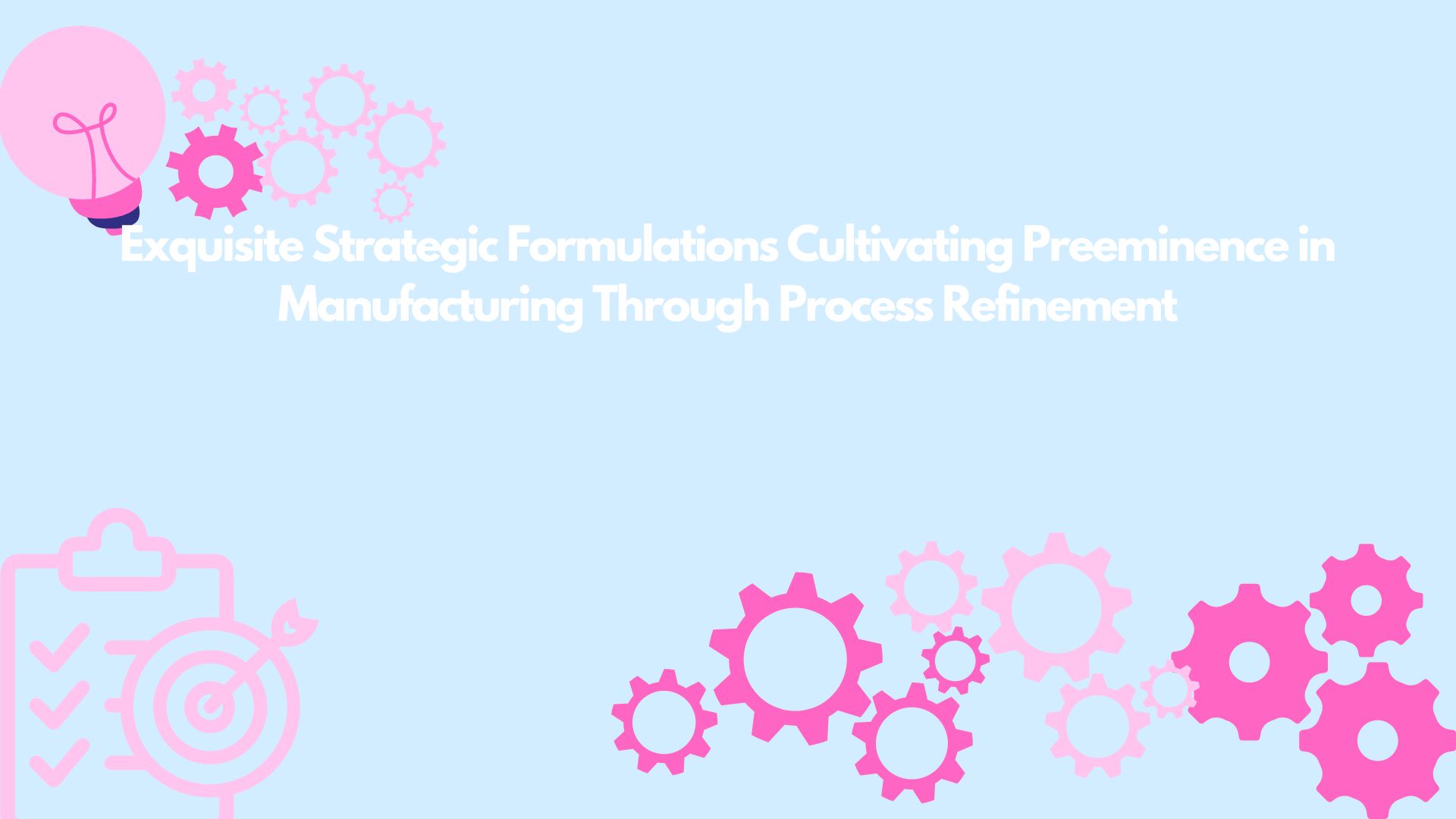In the quest for industry leadership, manufacturing enterprises must not only excel in their core operations but also continuously refine their processes to achieve preeminence. The pursuit of operational excellence requires a meticulous approach to strategic formulations, focusing on process refinement to drive sustained success. This blog explores the refined strategies that can elevate manufacturing organizations to a pinnacle of excellence, ensuring they remain at the forefront of a competitive marketplace.
1. Articulating a Vision for Process Excellence
The foundation of process refinement begins with a clear and compelling vision. Manufacturing enterprises must articulate a strategic vision that prioritizes process excellence and aligns with broader organizational goals. This vision should encompass both short-term improvements and long-term aspirations, providing a roadmap for continuous refinement. A well-defined vision fosters alignment across all levels of the organization and motivates teams to pursue excellence with purpose and determination.
2. Implementing Advanced Process Mapping Techniques
Effective process refinement hinges on a deep understanding of existing workflows. Advanced process mapping techniques, such as value stream mapping and process flow diagrams, offer valuable insights into every stage of production. By meticulously mapping out processes, manufacturers can identify bottlenecks, redundancies, and areas for improvement. This comprehensive analysis serves as the basis for targeted interventions, enabling organizations to streamline operations and enhance overall efficiency.
3. Adopting Six Sigma Methodologies
Six Sigma methodologies, characterized by their data-driven approach and focus on reducing variation, are instrumental in achieving process refinement. By employing Six Sigma tools and techniques, such as DMAIC (Define, Measure, Analyze, Improve, Control), manufacturers can systematically identify and address process inefficiencies. The application of Six Sigma principles not only improves product quality but also enhances operational consistency, fostering a culture of continuous improvement.
4. Integrating Automation and Smart Technologies
Automation and smart technologies play a pivotal role in process refinement. The integration of robotics, automated systems, and smart sensors enhances precision and reduces manual intervention. Advanced manufacturing technologies, such as Industry 4.0 solutions, enable real-time monitoring and control of production processes. By leveraging automation and smart technologies, manufacturers can achieve higher levels of efficiency, accuracy, and scalability.
5. Fostering a Culture of Continuous Improvement
Process refinement is an ongoing endeavor that requires a culture of continuous improvement. Encouraging a mindset of perpetual enhancement empowers employees to identify and address process inefficiencies proactively. Implementing frameworks such as Kaizen, which emphasizes incremental improvements and employee involvement, fosters a culture where every team member contributes to refining processes and driving operational excellence.
6. Leveraging Data Analytics for Informed Decision-Making
Data analytics is a cornerstone of strategic process refinement. By harnessing the power of big data and advanced analytics, manufacturers can gain actionable insights into process performance and trends. Predictive analytics, for instance, enables proactive decision-making by forecasting potential issues before they arise. Data-driven decision-making ensures that process refinements are based on empirical evidence, leading to more effective and targeted interventions.
7. Enhancing Collaboration and Cross-Functional Integration
Effective process refinement requires seamless collaboration and integration across different functional areas. Encouraging cross-functional teams to work together facilitates the exchange of knowledge and expertise, leading to more holistic process improvements. By breaking down silos and fostering a collaborative environment, manufacturers can address complex challenges and implement comprehensive refinements that drive overall success.
Conclusion
Cultivating preeminence in manufacturing through process refinement is a multifaceted endeavor that demands strategic foresight and meticulous execution. By articulating a clear vision, implementing advanced process mapping, adopting Six Sigma methodologies, integrating automation, fostering a culture of continuous improvement, leveraging data analytics, and enhancing collaboration, manufacturing enterprises can achieve unparalleled excellence. The journey to process refinement is ongoing, requiring dedication, innovation, and a commitment to continuous advancement. Through these exquisite strategic formulations, organizations can position themselves as leaders in the manufacturing sector, driving sustained success and achieving a lasting competitive edge.









